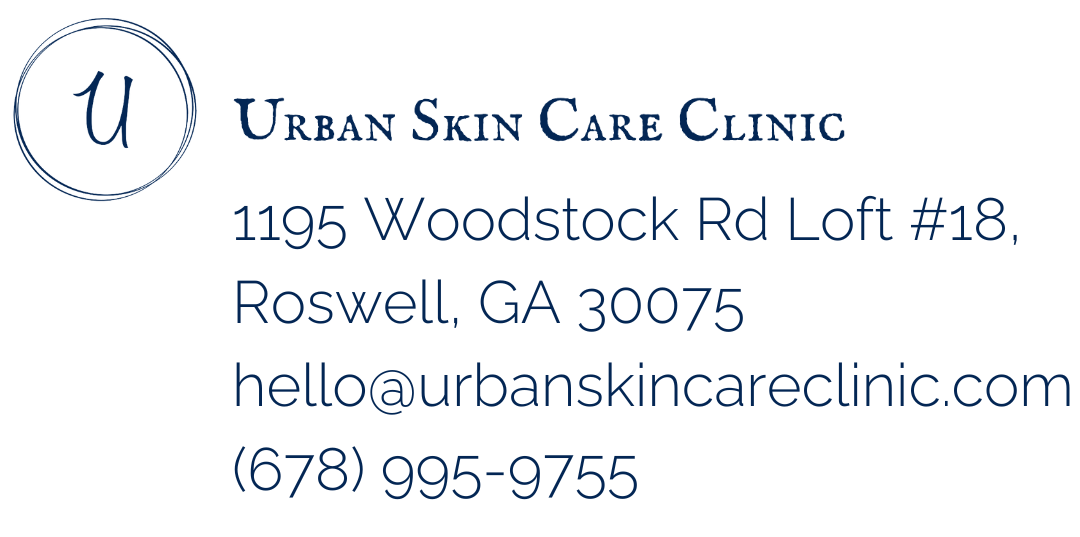What causes dark spots and Melasma?
Call them age spots, liver spots, or sun spots, no matter what name they go by, these patches are often signs of skin damage.
Dark Spots are also called hyper-pigmentation, meaning there is too much melanin, which gives our skin color. Now there's another term called hypo-pigmentation, and that's when melanin is missing. Skin color is missing at that spot, skin just looks white.
What causes dark spots?
The number one cause of dark spots is sun damage. Years of being in the sun start to add up. You'll notice these tan or brownish spots on adults over the age of 55 Most commonly, and they appear on the areas most exposed to the sun over many years. Dark spots tend to appear on the face, chest, hands, back, and shoulders.
How can you prevent dark spots in your golden years?
You can do something right now, every day to prevent them in the future and that is wearing your sunscreen every day, all day!
What is melasma?
Melasma or Chloasma is a skin condition that causes dark, discolored patches on the skin. According to the American Academy of Dermatology, 90% of people who develop melasma are women, and darker skin toned women are more at risk than those with fair skin.
What are the symptoms of melasma?
These patches are darker than your usual skin tone. They typically occur on the face and tend to be symmetrical with matching marks on both sides of the face.
These brownish-colored patches usually appear on the forehead, cheeks, upper lip, and chin. I actually have a great example on my website. Her name is Mary Katherine, she's a sweetheart. Check out her before and after pictures to have a visual of what melasma looks like.
What causes melasma?
It isn't clear what causes melasma but hormones have a lot to do with this skin condition! When hormone levels zigzag up and down, one of the most common side effects is a change in skin pigmentation. This is frequently seen during pregnancy, hormone therapies, or even changes in birth control.
Is melasma treatable?
For some women, melasma disappears on its own, especially if it happens during pregnancy. Sometimes people call it the pregnancy mask—it shows up during pregnancy and it goes away on its own—but for others, it tends to linger.
If you haven't checked out MaryKathryn's before and after pictures, pause right now and go check out her pictures. It's truly life-changing. She now feels a lot more comfortable and confident in her own skin and doesn't feel the need to cake on makeup anymore.
How can you prevent dark spots and melasma?
1) Avoid inflammation. Dark spots can sometimes develop after inflammation or injury to the skin, especially for those suffering from acne, eczema, or other skin conditions. Picking and squeezing at your breakouts will most definitely leave a dark spot.
2) Avoid heat, especially if you have melasma! If you have melasma, heat is NOT your friend. These are all sources of heat: hot saunas, hot yoga, direct sun exposure… You'll actually notice in the summertime, even if you're not a sun worshiper, just being in the heat of the summer can bring up and out your melasma. Your dark spots are way more apparent in the summer months than in the winter.
3) Shield yourself from the sun; wear your SPF every day of the year.
4) Using vitamin C regularly can help keep your skin tone even. A topical antioxidant like Vitamin C helps with the look of dark spots when applied on a regular basis.
Moral of the story: wear your sunscreen every day, all day, even if it's cloudy outside.
Alright, that’s a wrap for today. Share this blog post with a friend or someone you think would benefit from the information shared and my inbox is always open for your feedback. Feel free to reach out on Facebook or Instagram at Urban Skin Care Clinic, or email hello@urbanskincareclinic.com
And remember, you are enough just as you are. Take care, my friend!


